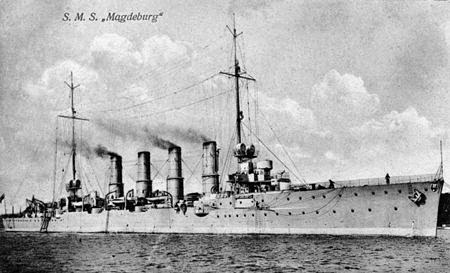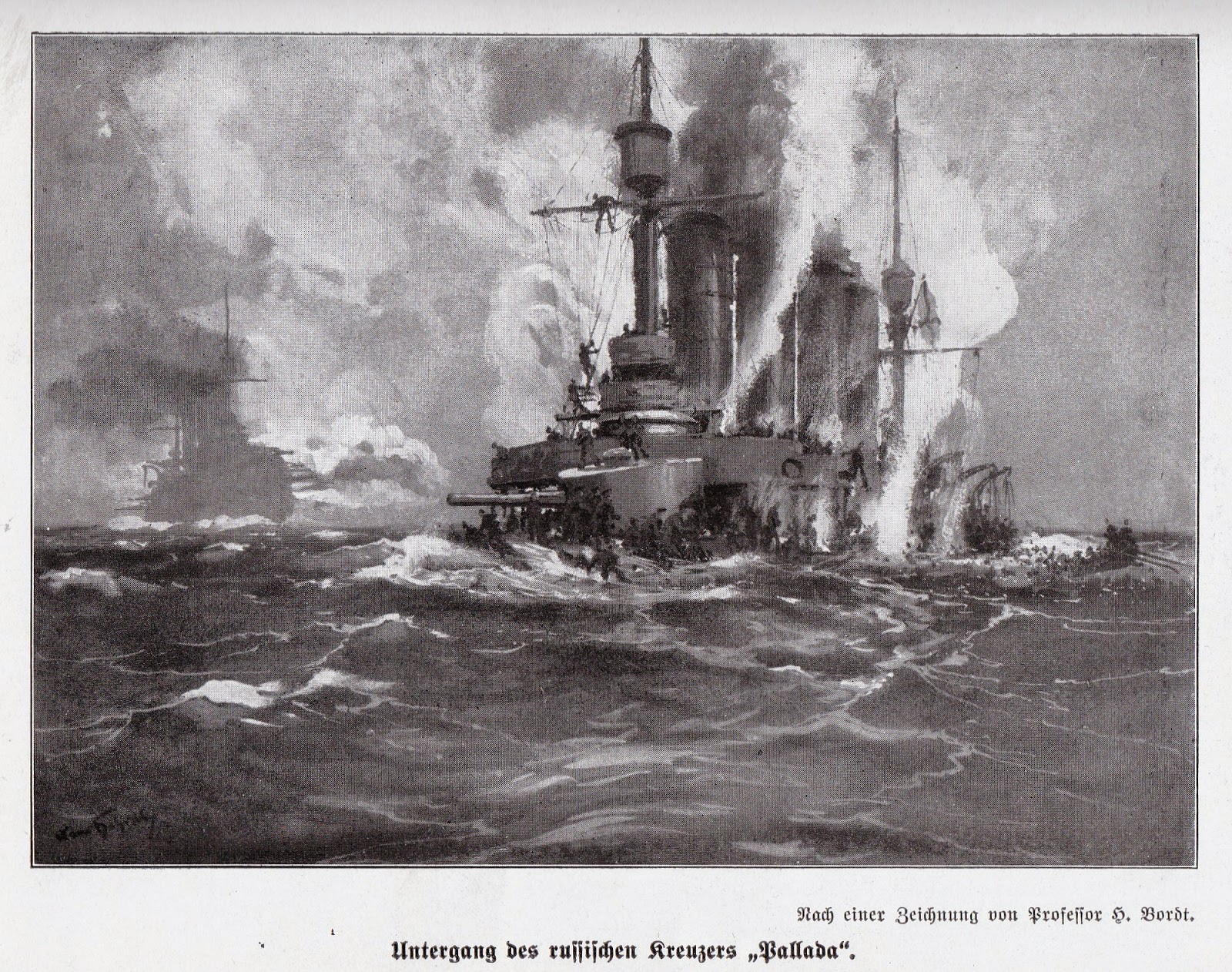The illustration below is from a German WW1 part-work, published monthly, in this case in 1914/15. It is an artist’s impression of the destruction of the Bayan-class Russian armoured cruiser Pallada on 11thOctober 1914. There were no survivors from her 597-man crew when she blew up after being torpedoed by the German submarine U-26.
This 7750 ton vessel, armed with a main armament of two 8-inch and eight 6-inch guns, plus smaller weapons, was already obsolete then she was commissioned in 1911. In overall configuration – single bow and stern chasers and her remaining heavy weapons in casemates – she had more in common with doomed British counterparts, such as Aboukir, Cressey, Hogue and Good Hope, built a decade earlier, than with the battle-cruisers that were already replacing armoured cruisers in the British and German navies. Palladawas however of only half the displacement of the old British cruisers and one wonders why money was ever invested in her and in her sisters Bayan and Makarov.
 |
| SMS Magdeburg |
Though the Pallada was the first Russian warship to be lost in World War 1 she had already provided a service of inestimable value, even though it came about by pure chance. The tltra-modern German cruiser Magdeburg had run aground off the Estonian coast on 26thAugust and efforts by a destroyer to tow her free had proved unsuccessful. While the attempt continued the Palladaarrived on the scene with another cruiser, the Bogatyr, one of the few Russian ships to survive operations in the Far East during the Russo-Japanese War. Unable to run, and taken under fire by the Russians, the Magdeburg’s crew attempted to scuttle, blowing off the forepart of the ship but leaving the remainder largely intact. More important however was the fact that priority had not been given by the German captain to destruction of the code-books. These the Russians managed to recover from the wreck – a fact that the Germans did not suspect. The need to change the codes was not appreciated and the Russians had won a treasure. The code-book was passed on to the British and was of vital importance in allowing the Royal Navy’s “Room 40” – the WW1 centre of code-breaking which was comparable to Bletchley Park in WW2 – to read German naval radio-traffic through much of the war.
Short the Pallada’sservice life might have been, but it was to have a massive impact on Britain’s prosecution of the war at sea. The tragedy was that her crew died without knowing it.
Short the Pallada’sservice life might have been, but it was to have a massive impact on Britain’s prosecution of the war at sea. The tragedy was that her crew died without knowing it.
Download a free story: Britannia’s Eventide
If you have not already subscribed to the mailing list, you can do so by clicking here or on the cover-image above. You will then get a copy of the story by e-mail.
Britannia's Eventide is a snapshot of a critical moment in the later years of Admiral Sir Nicholas Dawlish and his wife, Lady Florence, whom you will have met earlier in their lives in the five books of the series so far. It is not available elsewhere at this time. It is a companion piece to the short-story Britannia's Eye, which is a bonus-addition to the novel Britannia's Amazon, and which gives a glimpse of Nicholas Dawlish's childhood.
I hope that you will enjoy the story, no less than the novels in the series. I always value feedback, so don't hesitate to get back to me. I'd especially like to know what you think of the idea of free short-stories that fill in gaps in Dawlish's career that may not justify full books.
Best Wishes: Antoine Vanner

